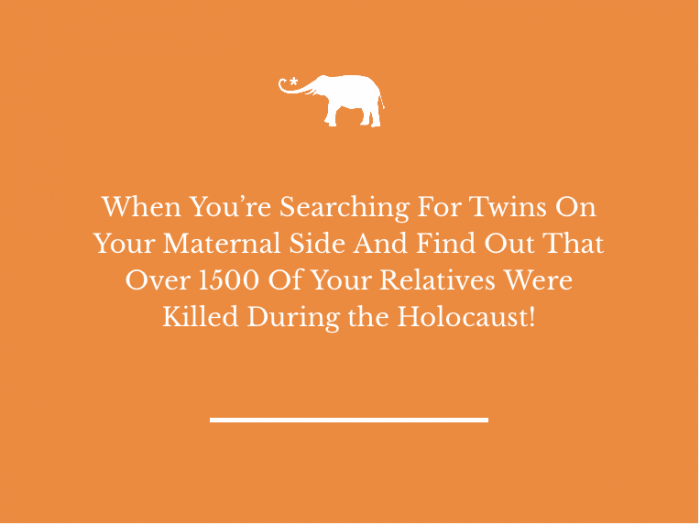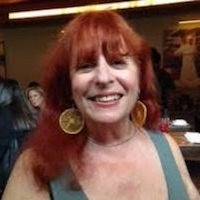Sherri Rosen Interviews the author, Stella ter Hart
Stella: I, too, have a tendency to keep secrets. I’ll keep information I know, and plans I make, to myself, rather than sharing them. After finishing my book, I was seriously tempted with just keeping it to myself, afraid of the reaction it might cause. But that is actually a selfish fear that I had to get over. I now weight whether something I know, or plan to do, is also something I need to share with others rather than keeping it all hidden inside. I have to very consciously work hard to always be truthful. My mother struggled with telling the truth, a fact that I became aware of when I was very little. I’ve also watched my siblings struggle with honesty and secrecy.
Stella: I have three children, now all adults, and I have always shared with them their ancestral background. However, not in the same way, and not with the same detail as what I write about and describe in my book, as before I began the research for my book, even I wasn’t aware of the depth of the truth. I believe that my children are all kinder, more empathic, richer people for knowing their family background.
Sherri: Anything you would like to share with the public about family, about the Holocaust?
Stella: Every family has its secrets. Every family has its tragedies, and every family has its joys. My mother mourned the fact that in modern times, families often split apart, develop differences and hold grudges. She commented that when the war was over, survivors dedicated their lives to finding other survivors and how sad it was today that people have such a lax attitude towards caring for their families. Yes, it’s true that there are often very real issues, challenges and clashes that happen in families, but, in the end, they are our deepest connection to anything else on the planet, and when a family member is gone, a part of our own selves is gone as well.
As regards the Holocaust, we are now 76 years past it and the greatest danger is its fading into history, its fading into data, numbers and statistics. I’ve read many books on the Holocaust, and biographical non-fiction books as well. They were of immense importance, but made for dry reading. One of the reasons I chose to write my book in a fictionalized form was to make it more accessible, more readable, more relatable. The Holocaust must be part of every country’s educational curricula. I also believe that people become de-sensitized if the Holocaust is presented, as it usually is, in an aggressive, angry, loud manner. It’s hard to explain what I’m driving at, but if someone yells something at you, you immediately take a defensive stance, but if someone is gentle, and explains even a terrible thing with love and consideration, you’ll embrace it, understand it, and remember it. I hope that my book causes people to reflect on the Holocaust in a more human, less academic, way.
Stella: That’s a very interesting question. The writing of my book helped me in many ways. Most importantly, I became an even more sympathetic person. I’m a mom and a grandma, so have lots of love and patience to give, but over the years, hard challenges in life caused me to I’d lose the edge on that patience. Facing the horrible facts of my family’s background actually helped me let go of any difficulties in my past as, in comparison, I’ve had a privileged, easy life. I don’t have to worry about a superior power entering into my life, or that of my family, and stealing our lives from us; such a sharp contrast to my family’s past! As a result, I’m so patient with others, try to see life from their perspective, respect people’s differences, and allow others to always be themselves.
Stella: This is a great question and one I am very happy to answer! At first, I was compelled to simply get my family’s story down, to preserve it for future generations. As I researched, and learned more and more about the events happening during those times and understood the impact those events had on my mother’s entire life, I knew that the story was powerful enough to share with others. There are many books about those times, but that doesn’t mean the stories should end, or that there isn’t room for a new, untold story. You may think you already know everything about an event, but then someone presents it in a different light, and your understanding of it deepens. Younger people, in particular, need to know the pure evil that was the Holocaust. The only way we can change the views and opinions of the world are through education and awareness. One of the editors who assisted with the book mentioned that it should be standard reading in all high schools!












Read 0 comments and reply